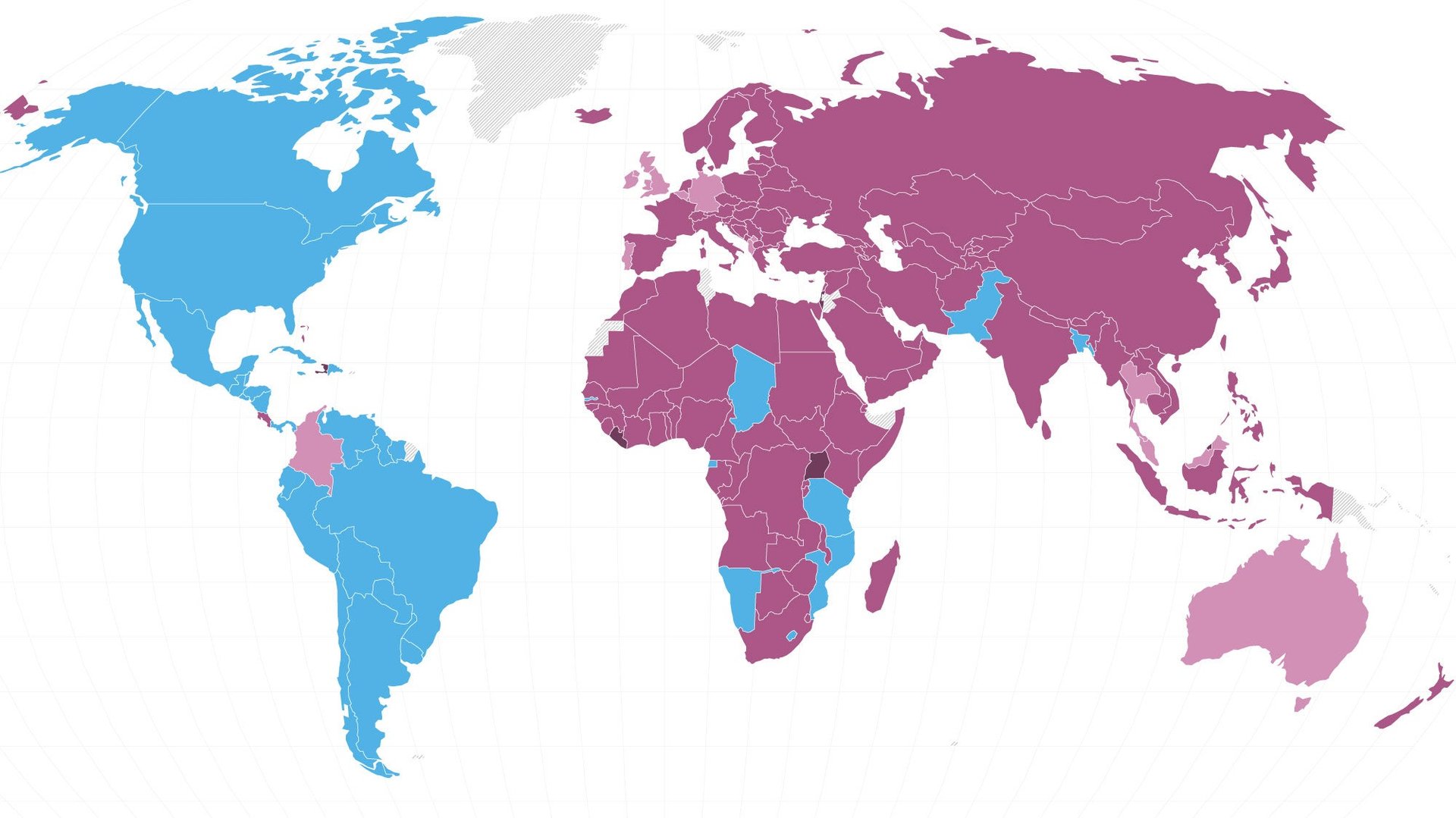One in four countries around the world grant birthright citizenship
Donald Trump says he plans to end birthright citizenship in the US—a practice that grants anyone born on American soil unconditional citizenship—with an executive order. He told Axios:


Donald Trump says he plans to end birthright citizenship in the US—a practice that grants anyone born on American soil unconditional citizenship—with an executive order. He told Axios:
“We’re the only country in the world where a person comes in and has a baby, and the baby is essentially a citizen of the United States … with all of those benefits… It’s ridiculous. It’s ridiculous. And it has to end.”
Birthright citizenship is a privilege, but the US is far from “the only country” granting citizenship to those born within the country’s territory, according to nationality laws tracked by GLOBALCIT. Among the 174 countries with nationality laws data available for 2016, 39 of them, or about 1 in 4, grant citizenship to people born in the country, barring exceptions to children of diplomat parents. It’s the most common practice for the countries in the Americas: Canada, Mexico, Argentina, Brazil, among others, all follow this practice. Ending citizenship by birthplace would distance the US from its neighbors.
Instead of birthright citizenship, the majority of countries today have citizenship by blood, in which parents pass down their citizenship to their children.
Birthright citizenship is often interpreted as a key way of measuring openness toward immigrants. Responding to social and political environments of different times, countries have taken nationality laws regarding citizenship to the center of the debate and subsequently made changes to them.
The United Kingdom used to grant birthright citizenship. Facing an increasing international population coming to the country, the government removed unconditional citizenship by birth in the British Nationality Act of 1981. Children born in the UK today can get citizenship only if they have at least one parent who’s a citizen or is a resident of the British territories. Germany loosened its policy in 2000, replacing the parent’s citizenship requirement with residency. Children born to a parent who has a German resident permit or has lived in Germany for at least eight years can get German citizenship.
Birthright citizenship didn’t exist in the US at the beginning. It was the result of the Civil Rights Act of 1866, followed by the Fourteenth Amendment and the 1898 Supreme Court decision in United States v. Wong Kim Ark, which led to the racial and ethnic diversity in the US today. Reverting back would be easier said than done.
Correction: An earlier version of the map coded Costa Rica incorrectly. Children born within the territory of Costa Rica are granted citizenship, regardless of the nationality of the parents.